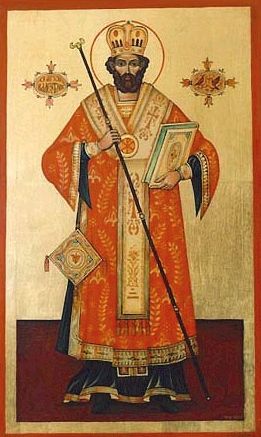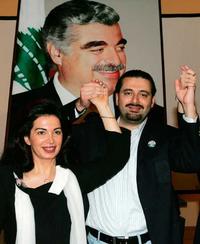
Valentine was a holy priest in Rome, who, with St. Marius and his family, assisted the martyrs in the persecution under Claudius II. He was apprehended, and sent by the emperor to the prefect of Rome, who, on finding all his promises to make him renounce his faith ineffectual, commanded him to be beaten with clubs, and afterwards, to be beheaded, which was executed on February 14, about the year 270. Pope Julius I is said to have built a church near Ponte Mole to his memory, which for a long time gave name to the gate now called Porta del Popolo, formerly, Porta Valetini. The greatest part of his relics are now in the church of St. Praxedes. His name is celebrated as that of an illustrious martyr in the sacramentary of St. Gregory, the Roman Missal of Thomasius, in the calendar of F. Fronto and that of Allatius, in Bede, Usuard, Ado, Notker and all other martyrologies on this day. To abolish the heathens lewd superstitious custom of boys drawing the names of girls, in honor of their goddess Februata Juno, on the fifteenth of this month, several zealous pastors substituted the names of saints in billets given on this day.
Follow the industry you are interested in, and participate in communities you care about. Don’t just retweet what others are saying; create meaningful content that people care about. Be a thought leader. Use Twitter as a jumping-off point to your more detailed online profiles — a personal blog or LinkedIn profile, for example. Many companies […]
The Hariri Political Dynasty after the Arab Spring
WARD VLOEBERGHS

Quite symbolically, in September 2011, the Rafiq Hariri DVD box on offer in downtown Beirut’s Virgin Megastore came at a discounted price. Next door, the flowers at Hariri’s gravesite were no longer being refreshed every couple of days; instead artificial flower arrangements had been planted. Worse, perhaps, in January 2012 Saad Hariri (Rafiq’s son and political successor) broke a leg during asking holiday in the French Alps. Obviously, a year after Saad Hariri’s government had been ousted from power, the juvenile ‘Hariri dynasty’ seemed to have hit an adolescent crisis. Plagued by political rivals, financial troubles and dangerously lingering Syrian crisis, Saad Hariri was spending most of his time between Paris and Riyadh. During the past two decades (1992-2012), the Hariri family has continuously wielded governmental power in Lebanon, except for a short spell between December 1998 and October 2000 and an even shorter period between October 2004 and June 2005. Their conspicuous absence from power in the cabinet since early 2011, which could last until the parliamentary elections of 2013, constitutes a remarkable rupture with the past .In order to understand this dramatic change, this article intends, first, to analyze the birth of a dynasty and, second, the reasons behind its apparent decline before, thirdly, assessing perspectives for its survival in an uncertain regional environment now dominated by the Syrian imbroglio.

Birth of a Dynasty
After the spectacular assassination of its resourceful patriarch on 14 February 2005, the Hariri family was under pressure to put forward a new leader. The relatives of former Prime Minister Rafiq Hariri(b. 1944) settled the issue in about two months. On 20 April 2005, the family took advantage of the traditional forty days of mourning (arba‘in) to announce that Nazek Hariri (Rafiq Hariri’s widowed second spouse and mother of four of his seven children) was to oversee “all charitable and social institutions” while his son Saad was to “assume the historic responsibility and leadership of all national and political affairs”.
i
Among the direct family members, Bahia Hariri (Rafiq Hariri’s younger sister, b. 1952 and married to her paternal cousin Mustafa Hariri) enjoyed most political seniority. As a parliamentary representative for the family’s hometown of Saida since 1992 and as the erstwhile Director of the Hariri Foundation, she had witnessed from the inside how her brother’s political career unfolded. Moreover, on 28February 2005, Bahia Hariri had delivered an emotional speech in Parliament which had contributed to Omar Karami’s resignation as Prime Minister that same day. Following this intervention, her popularity had risen and several observers may have seen in her a potential first female Arab Prime Minister – although she herself soon contradicted such rumors. Though Bahia Hariri’s absence from the political scene following Saad’s designation was heavily debated, she has continued to be a major force in the family stronghold of Saida. She served as Minister of Education between July 2008 and November 2009.For his part, as Hariri’s eldest son, Bahaa ad-Din (b. 1967) was the natural heir to his father’s political authority. Contrary to his younger brother Saad ad-Din (b. 1970), Bahaa appeared as a strong and flamboyant personality. In the days following his father’s death, it was Bahaa – not Saad – who was presented as the main broker of the family’s interests. It was Bahaa who travelled to Riyadh in early lieutenants in public administration.



